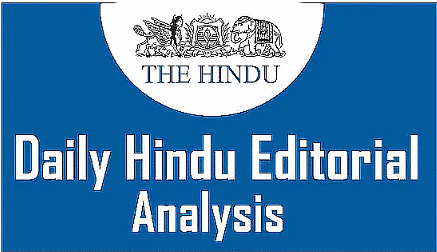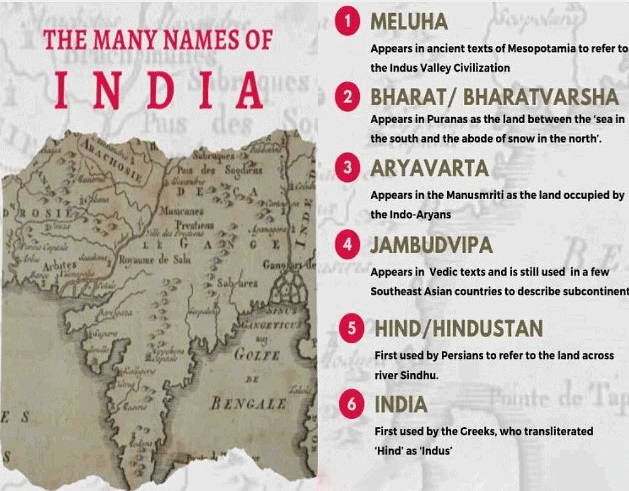UPSC Exam > UPSC Notes > Current Affairs & Hindu Analysis: Daily, Weekly & Monthly > The Hindu Editorial Analysis- 16th September 2023
The Hindu Editorial Analysis- 16th September 2023 | Current Affairs & Hindu Analysis: Daily, Weekly & Monthly - UPSC PDF Download

In diverse India, name change demands consensus
Why in News?
An official invitation sent out by Rashtrapati Bhavan in connection with the G-20 summit in New Delhi under India’s presidency which carried the nomenclature of the President of India as ‘President of Bharat’ set off a controversy.
What are the Historical Perspectives on the Names "India" and "Bharat"?
- Constitutionality:
- Article 1 of the Indian Constitution already uses both "India" and "Bharat" interchangeably, stating, "India, that is Bharat, shall be a Union of States."
- The preamble of the Indian Constitution begins with "We the People of India," but the Hindi version uses "Bharat" instead of India, indicating interchangeability.
- Additionally, some government institutions, such as the Indian Railways, already have Hindi variants that include "Bharatiya."
- Origin of the Name Bharat:
- The term "Bharat" has deep historical and cultural roots. It can be traced back to Puranic literature and the epic Mahabharata.
- Vishnu Purana describes "Bharata" as the land between the southern sea and the northern snowy Himalayan mountain.
- It signifies a religious and socio-cultural entity more than a mere political or geographical one.
- Bharata is also the name of a legendary ancient king, considered the ancestor of the Rig Vedic tribes of Bharatas, symbolizing the progenitor of all subcontinent's people.
- Origin of the Name India:
- The name India is derived from the word Indus, which is the name of a river that flows through the northwestern part of the subcontinent.
- The ancient Greeks called the people living beyond the Indus as Indoi, which means “the people of Indus”.
- Later, the Persians and the Arabs also used the term Hind or Hindustan to refer to the land of Indus.
- The Europeans adopted the name India from these sources, and it became the official name of the country after the British colonial rule.

- Constitutional Assembly Deliberation Regarding India and Bharat:
- The debate surrounding the country's name is not new. When the Constituent Assembly was framing the Constitution in 1949, there was a division of opinions regarding the name.
- Some members felt that "India" was a reminder of colonial oppression and sought to prioritize "Bharat" in official documents.
- Seth Govind Das from Jabalpur advocated for placing "Bharat" above "India," emphasizing that the latter was merely a translation of the former in English.
- Hari Vishnu Kamath cited the example of the Irish Constitution, which changed the name of the country upon achieving independence, as a precedent for using "Bharat."
- Hargovind Pant argued that the people wanted "Bharatvarsha" and rejected the term "India" imposed by foreign rulers.
- Recent Development:
- In 2015, Centre opposed a name change, stating that the issue had been extensively deliberated upon during the Constitution's drafting.
- The Supreme Court has twice rejected pleas to rename 'India' to 'Bharat', once in 2016 and then in 2020, reaffirming that "Bharat" and "India" both find mention in the Constitution.
What is the Historical Significance of the Name “Hindustan”?
- The term "Hindustan" has historical significance and was popular in Punjab. Sikh founder Guru Nanak Dev mentioned "Hindustan" in Gurbani, and Guru Teg Bahadur is known as the protector of "Hind" and religion.
- Shah Muhammad documented conflicts between the British and Sikhs as a war between "Hind" and Punjab.
- The Ghadar Party and freedom struggle activists used "Hindustan" in their movements, making it relevant in Punjab's history.
The document The Hindu Editorial Analysis- 16th September 2023 | Current Affairs & Hindu Analysis: Daily, Weekly & Monthly - UPSC is a part of the UPSC Course Current Affairs & Hindu Analysis: Daily, Weekly & Monthly.
All you need of UPSC at this link: UPSC
|
38 videos|5293 docs|1118 tests
|
Related Searches





















